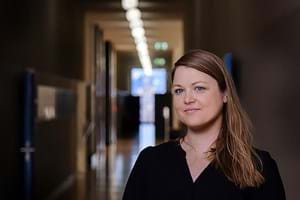News - 29.01.2025
A Workplace Without Discrimination
Iceland has changed and will never be the same. Since the turn of the century, the proportion of immigrants in the labor market has grown rapidly. With the rise of the tourism and construction industries, along with population growth, employees with a foreign background play an indispensable role in the economy and society. While many have adapted to society and become new Icelanders, learning the language and customs, it cannot be said that society has adapted to them.
Young and educated people come here, and the message they receive from the labor market upon arrival is that they do not need to learn Icelandic as they can get by on English. Years later, when these individuals decide to settle down and even start families, the message shifts to scolding them for not having mastered Icelandic while working more than locals for lower wages.
These individuals pay their taxes, participate in the labor market at higher rates than locals, and have one wish: to take an active part in society. Instead, they face various obstacles, whether from institutions that provide vital information only in Icelandic, nepotism that keeps outsiders from promotions, or unwritten rules that only locals know and share among themselves.
This group is growing, now making up almost 20 percent of the population according to Registers Iceland, or about one in every four workers in the labor market.
Trade unions have not been ahead of the curve on this issue; 18 years ago, it was newsworthy that the number of VR members with foreign citizenship had increased by one-third in a single year, reaching 650 in total. In 2021, 11 percent of VR members were foreign citizens, a number that rose to 17 percent last year.
This is the fastest-growing group in our membership, and despite its small size, 38 percent of all issues handled by the union’s labor affairs division, excluding work permits, involved foreign members. This means foreign members are more than twice as likely to need assistance as local members.
This is a development we on the VR Board take seriously, and is the reason why, in 2023, the Equality and Human Rights Committee decided to map out the challenges and address them, as we aim to promote workplaces without discrimination.
Immediate efforts were made to improve foreign members’ access to information, both online and in published materials. The VR website was mirrored so that all news is available in both Icelandic and English. Additionally, educational materials used by the workplace inspection team were reviewed and improved in multiple languages.
Research from both the Confederation of Icelandic Labour (ASÍ) and Varða – the Research Center for Labour Market Issues – shows that foreign workers are more frequently subjected to violations than local workers, that such workers are paid lower wages for their work, and that they struggle more to make ends meet. In a survey conducted by Varða, 56 percent of foreign workers stated they had experienced violations in the labor market—a finding consistent with an internal survey conducted by VR that examined the situation of foreign members, their attitudes, and their knowledge of their rights.
These results spurred the committee to action. After numerous meetings with various experts within and outside the labor movement, it was decided to collaborate with the advertising agency Hvíta húsið to launch a campaign supporting this ever-growing group of ours. While we cannot change society as a whole, we aim to play our part in lowering barriers. We want to improve access to information, empower our members to assist their colleagues taking their first steps in the country or navigating complex systems, and highlight the positive attitudes that can already be found in many workplaces across Iceland.
Iceland has changed and will never be the same. Nostalgia or wishful thinking will not transform the country into the nation it was before the turn of the century. Fortunately, today we are enriched by people who want to belong to our society and put down roots here. Through solidarity and a shift in mindset, we can create a better future where everyone has the opportunity to grow and thrive in our society, contributing to its richness.
Gabríel Benjamin, Chair of the VR Equality and Human Rights Committee


